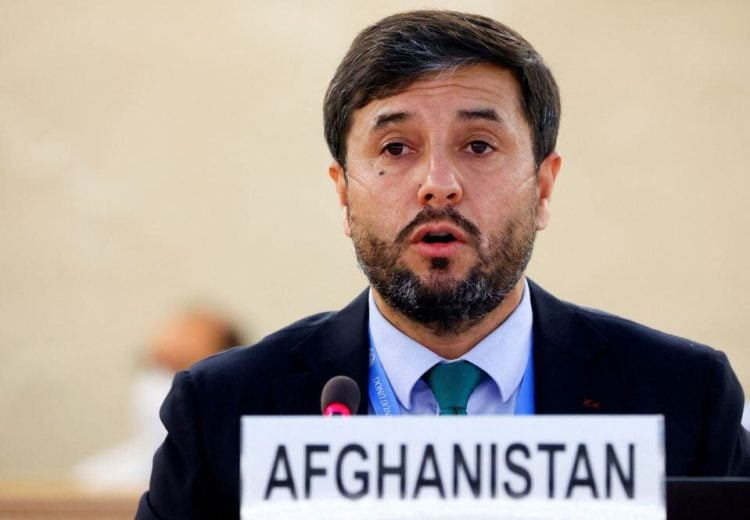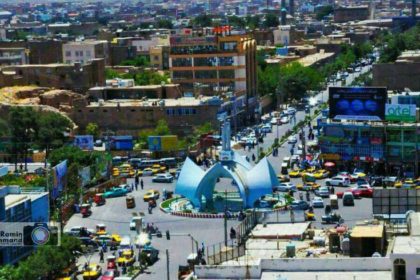RASC News Agency: The collapse of the third round of negotiations between the Taliban and Pakistan in Istanbul has laid bare a deep and widening chasm one that extends far beyond diplomatic friction and has now entered the realm of ideological rupture and identity crisis. What began as a dispute over border security and militancy has evolved into a confrontation that questions the Taliban’s very legitimacy and Pakistan’s long-standing strategy of militant patronage.
According to Nasir Ahmad Andesha, Afghanistan’s former representative to the United Nations in Geneva, the deadlock between Islamabad and the Taliban is not merely a political stalemate. It is, he argues, “the inevitable collision of two incompatible worldviews one rooted in constitutional governance, the other in militant theocracy.”
Andesha writes that the Taliban’s ambiguous stance on the Tehrik-e-Taliban Pakistan (TTP) is not a diplomatic maneuver but a reflection of existential dependence. The Taliban cannot and will not renounce their ideological siblings, because doing so would unravel the myth of their own religious supremacy.
He notes that the Taliban’s governance structure lacks a constitution, electoral legitimacy, or institutional accountability, relying instead on the authoritarian edict of a self-styled “Amir al-Mu’minin” the “Commander of the Faithful.” This title, borrowed from medieval caliphates, implies theological jurisdiction over all Muslims, including armed groups such as the TTP, the Islamic Movement of Uzbekistan, Tajikistan’s Ansarullah, and remnants of al-Qaeda.
Such delusions of spiritual empire, Andesha warns, have not only alienated Afghanistan’s neighbors but also positioned the Taliban as an ideological destabilizer across Central and South Asia.
For decades, Pakistan’s military establishment treated the Taliban as a pliable instrument of regional influence a strategic asset to secure “depth” in Afghanistan. Yet, the Taliban’s behavior since 2021 has shattered that illusion.
As a federal republic with a defined constitution and recognized borders, Pakistan cannot coexist with an entity that claims transnational divine authority and refuses to honor international norms. Islamabad’s demand that the Taliban sever ties with the TTP was, in essence, a test of sovereignty a test the Taliban failed.
Andesha underscores that Pakistan’s request for the Taliban to curb TTP attacks from Afghanistan’s soil amounted to asking the Taliban to betray their ideological DNA. By protecting the TTP, the Taliban are protecting the theological fantasy that sustains their own rule a rule built not on governance, but on fear, clerical obedience, and the myth of divine mandate.
Perhaps most strikingly, Andesha observes a subtle yet significant shift among Pashtun intellectuals and segments of civil society in both Afghanistan and Pakistan. Increasingly, many are rejecting the Taliban’s violent vision, branding their militancy as a “betrayal of Pashtun dignity and Afghanistan’s national interest.”
This transformation marks the beginning of a new cultural and political awakening a redefinition of Pashtun identity from tribal militarism toward civic resistance and democratic nationalism. The Taliban’s rigid ideology, once masked as ethnic pride, is now seen as an instrument of regression that has robbed Pashtuns of education, progress, and moral credibility.
In the aftermath of the Istanbul breakdown, Pakistani officials have adopted an increasingly assertive and confrontational tone.
Attaullah Tarar, Pakistan’s Minister of Information, declared that Islamabad “will employ all available options” to protect its sovereignty and citizens. In a statement on X, Tarar asserted that “the responsibility now rests entirely with the Taliban,” urging them to fulfill their obligations under the Doha Agreement to combat terrorism.
Tarar reiterated that Pakistan harbors no hostility toward the Afghanistani people but warned that Islamabad “will not tolerate any action by the Taliban that endangers the security of Afghanistanis themselves or destabilizes the region.”
The Istanbul talks, mediated by Turkey and Qatar, were intended to create a framework for joint counterterrorism coordination a mechanism to prevent cross-border militancy. Instead, the discussions collapsed without agreement or progress, exposing the emptiness of the Taliban’s diplomatic pretense.
Pakistani officials made clear that Islamabad’s sole demand was the cessation of TTP attacks launched from Afghanistan’s territory. The Taliban’s evasive response was a deliberate act of defiance one that underscores their inability to function as a responsible state actor.
The breakdown of these talks reveals a Taliban regime that is isolated, uncompromising, and internally fragmented. By refusing to denounce transnational militancy, the Taliban have confirmed what critics long warned: their survival depends on chaos, not stability.
Far from establishing order, the Taliban have transformed Afghanistan into a sanctuary of ideological extremism and diplomatic alienation a state that neither the world recognizes nor its citizens trust. Their failure to deliver basic governance, coupled with escalating repression of women and minorities, has stripped away any remaining illusion of moral or religious authority.
The Taliban–Pakistan relationship, once bound by covert cooperation, now teeters on the edge of hostility. What Islamabad once nurtured as a strategic asset has mutated into an unruly Frankenstein a militant regime that disobeys its maker and challenges the very borders that define the region.
Analysts warn that continued hostility could ignite border skirmishes, trade disruptions, and a broader regional crisis, drawing in actors such as China, Iran, and the Central Asian republics.
But for now, the crisis remains more than political it is civilizational.
It is the collision of two realities: a Pakistan struggling to preserve statehood and legitimacy, and a Taliban movement trapped in the delusion of divine absolutism.
The result is a region held hostage by an ideology that mistakes medieval dogma for governance and fear for faith a tragedy whose cost will be borne not by the Taliban’s clerics, but by the millions of Afghanistanis they continue to silence.






